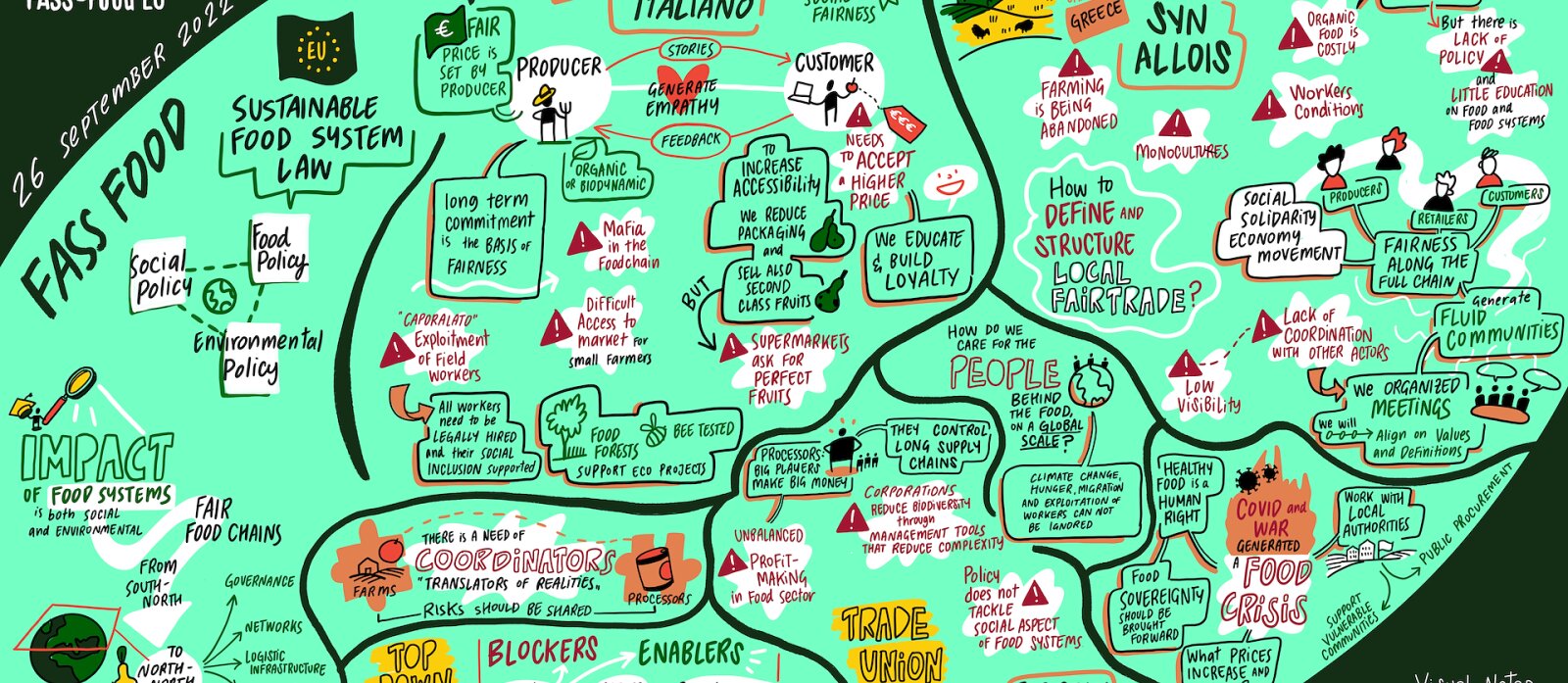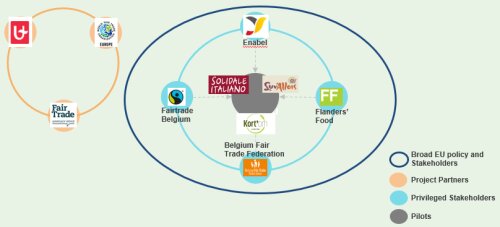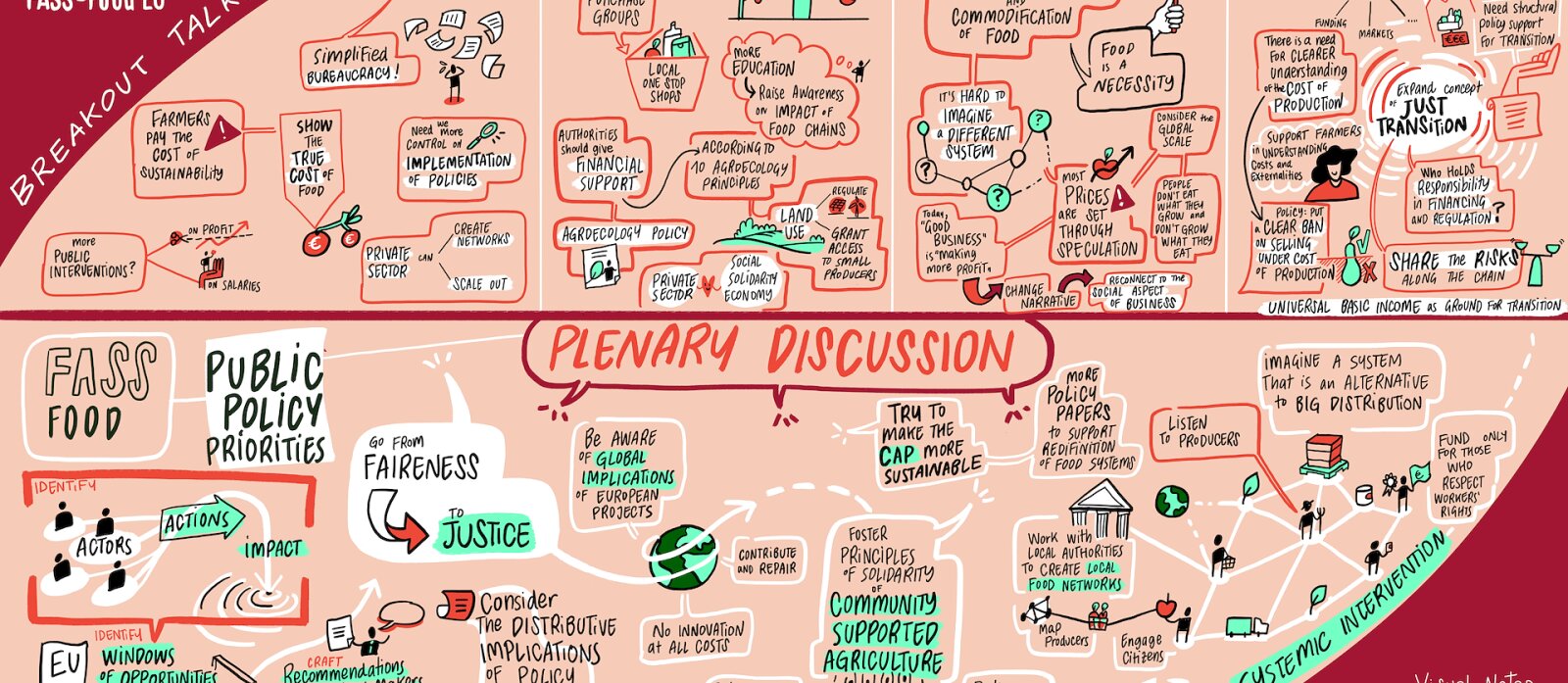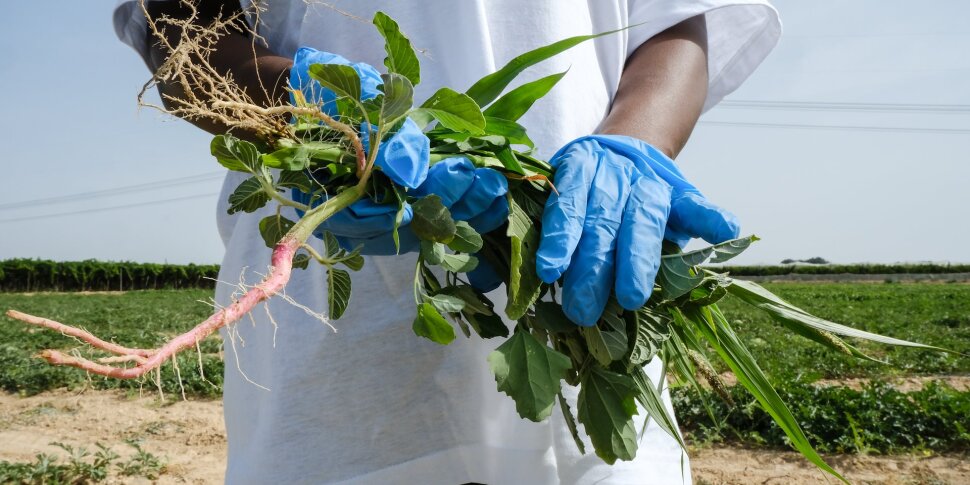In 2020, the European Commission issued the Farm to Fork strategy and recognized that the current EU food system is characterized by significant economic, social and environmental negative consequences (i.e. externalities). Among these, it was highlighted that small-scale farmers and SMEs receive a very limited percentage of the value generated, nature is increasingly degraded and eaters have limited to healthy food. Following the indications of the European Commission, in 2020 we launched a research and action project aimed at unpacking the systemic nature of the problems and support the adoption of a holistic approach to the future of EU food systems.
“Consolidate and scale up Fair, Accessible, Sustainable and Short Food Chains for the EU (FASS-Food EU)” is a research-action project that stems from the need to considers both social and environmental challenges of the dominant EU food system, and to provide solutions and new ideas that are equally systemic and intertwined. Is it possible, we asked, to build and consolidate food systems that respect both planetary and social boundaries, and implement policies and reforms that allow both the ecology and society to thrive? What does it take and what is the role of different actors in getting there.
The FASS-Food EU project in a nutshell (video)

To answer these questions we decided to combine the ‘top-down’ and institutionalized perspective of the European Union with the ‘bottom-up’ engagement with the daily experience of three alternative food chains and food actors who, on a daily basis, operate and reproduce alternative food systems with the aim to address the social and environmental weaknesses of the conventional food system. As discussed in the Methodology section, we organized interviews, workshops and a photographic project to shade light on the way in which the European regulator and alternative food actors deal with the need to change the way in which food is produced, transformed, transported, consumed and discarded.
With the contemporary adoption of these two approaches, we wanted to let the people speak. To hear from the policy makers and the civil society, from the farmers and the local administrations, and map the different way in which they try to provide solutions. What animates them and what are their priorities? What are their objectives and solutions? What obstacles are they facing and what leverage points do they encounter along the pathway towards their goals? What are the differences and convergences that characterize people operating in different parts of Europe but who share the interest and determination to improve the food system in which they operate, and how is the European legislator engaging with this diversity within the common vision of a European food system?
Framed as a participatory action research, FASS-Food EU aims to contribute to the ongoing process around Sustainable Food Systems for the European Union by giving visibility to voices, tensions and the diversity in diagnostic and solutions that characterize the current EU food system. We are thankful to our partners, to the University of Antwerp for funding the project, and to anyone who has been contributing to it by means of time, knowledge, trust and organization.
COMBINING BOTTOM-UP AND TOP-DOWN ENGAGEMENT WITH THE FUTURE OF EU FOOD SYSTEMS

The project was thought as a horizontal collaboration between different actors operating across multiple geographies and perspectives:
- 3 project partners leading the overall research and project management: Institute of Development Policy (University of Antwerp), World Fair Trade Organisation Europe and Fair Trade Advocacy Office;
- 3 project pilots providing the empirical basis to study 3 initiatives of short and collaborative food systems: Kort’om Leuven (Leuven, Belgium), Syn Allois (Athens, Greece) and Solidale Italiano (Italy);
- 4 privileged stakeholders (Flanders’ Food, Trade for Development Centre-ENABEL Fairtrade Belgium and Belgian Fair Trade Federation) contributing to the research process with a view to inform, validate and, possibly, adopt, implement and valorize the knowledge, practices and innovations that will be generated as project outputs;
- wide-ranging stakeholders (both at the national and EU levels) who have an interest in our research and have been regularly informed about and involved in the research process through multiple workshop sessions.
A recapitulation of our final workshop with FASS-Food EU partners and stakeholders (video)

